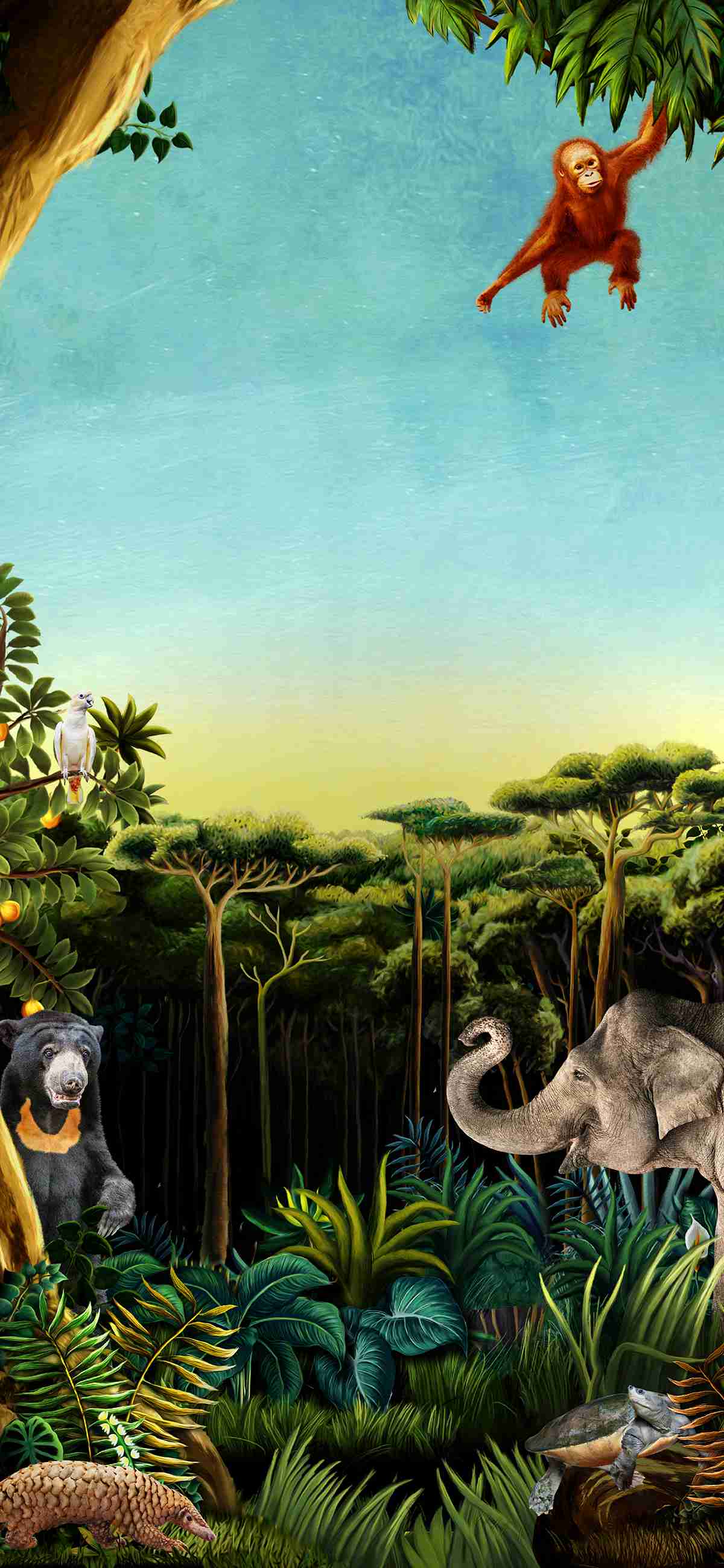Vision renewed for senior penguins following successful cataract surgery hailed as a milestone in veterinary medicine
14 Mar 2023
A medical apparatus is used to check the eye pressure of a Humboldt Penguin at Jurong Bird Park.
Photo credit: Mandai Wildlife Group

A King Penguin undergoing cataract surgery at The Eye Specialist for Animals.
Photo credit: Mandai Wildlife Group
Dr Ellen Rasidi, Veterinarian, Mandai Wildlife Group said, “We noticed the cloudiness in their lens and moving about like they were having difficulty seeing things in front of them. Cataract surgeries for animals are increasingly common and effective for restoring vision. Together with the animal care team, we opted for this procedure to enhance their overall well-being and welfare, as well as aid in the transition to their new home in Bird Paradise when they move. Since the recovery period, we have observed an increase in responsiveness and activity levels in the penguins. It is nice to see them more active, indicating their improved vision, and for the King Penguins – adapting well to the new lenses as well.”
Animals that reach 75 per cent of their life span are placed in a Senior Animal Care Plan, which includes more frequent health checks by the veterinary team and specialised diets to ensure they continue to live quality lives even in old age. As part of the penguins’ care regime, Mandai Wildlife Group engaged veterinary ophthalmologist Dr Gladys Boo from The Eye Specialist for Animals in August 2022 to check the eyes of its penguin colony where the senior penguins were diagnosed with cataracts.
Following the diagnosis, the Eye Specialist for Animals team led by Dr. Boo, together with the assistance of the veterinary team from Mandai Wildlife Group, successfully performed cataract surgeries on the penguin patients in December 2022. After the surgery, the penguins had to remain out of water and stayed in a separate den from the rest of the colony to recover, as keepers administered eye drops twice daily.
“The success of these surgeries marks a milestone in veterinary medicine. While intraocular lens implants are common for humans and some domestic mammals, it is likely the first-time they have been successfully used on penguins”, said Dr Gladys Boo, Veterinary Ophthalmologist from The Eye Specialist for Animals. “As a larger species, the King Penguins have eyes large and stable enough to hold the custom lenses in place, so we decided to pursue this world-first procedure to further improve their vision above removing the cataract. The lenses were custom-made in Germany to fit each penguin’s eye based on precise measurements taken in advance and took about two months to make. Cataract surgeries on their own are already delicate procedures, but for penguins, it was made trickier by unique characteristics such as a third eyelid which protects their eyes underwater. The third eyelid tends to close during the surgery which can make it difficult for us to access the eye. I’m glad we were able to work through these challenges to improve the lives of these animals.”
The penguins made a full recovery two months after the surgery, and they are currently back with the rest of the colony in Jurong Bird Park before they move.

Dr Gladys Boo, Veterinary Ophthalmologist, at The Eye Specialist for Animals checks the eye of a King Penguin at Jurong Bird Park’s Penguin Coast, while Marcus Tan, Senior Veterinary Nurse, Mandai Wildlife Group, holds the bird.
Photo credit: Mandai Wildlife Group

Penguin keeper Hafiz Yani prepares male King Penguin, Zorro, for the journey to The Eye Specialist for Animals clinic. To help keep them cool, the penguins were transported using buckets filled with ice and in air-conditioned vans.
Photo credit: Mandai Wildlife Group

A King Penguin undergoing cataract surgery at The Eye Specialist for Animals clinic.
Photo credit: Mandai Wildlife Group

Custom intraocular lenses were made in Germany based on measurements of each individual King Penguin’s eyes.
Photo credit: Mandai Wildlife Group

Custom intraocular lenses were implanted into the eye of a King Penguin using a medical apparatus (in green), a first of its kind procedure for penguins.
Photo credit: Mandai Wildlife Group

17-year-old Holly, the Humboldt Penguin, prior to surgery. The cataract is evident from the cloudiness in her left eye.
Photo credit: Mandai Wildlife Group

Holly, the Humboldt Penguin, post-surgery. A marked improvement can be seen on her left eye which is now cleared up after the cataract was removed. Keepers have noticed she is more active and responsive to her environment, an indication that her vision has improved.
Photo credit: Mandai Wildlife Group

Post-surgery, King Penguin Theo recovering in a separate den from the main exhibit.
Photo credit: Mandai Wildlife Group

Penguin Keeper Hafiz Yani, restrains a King Penguin while Senior Veterinary Nurse Tang Zhi Ying applies eye drops. As part of the post-surgery aftercare, Penguin keepers and veterinary nurses are administering eye drops for the penguins twice a day.
Photo credit: Mandai Wildlife Group

